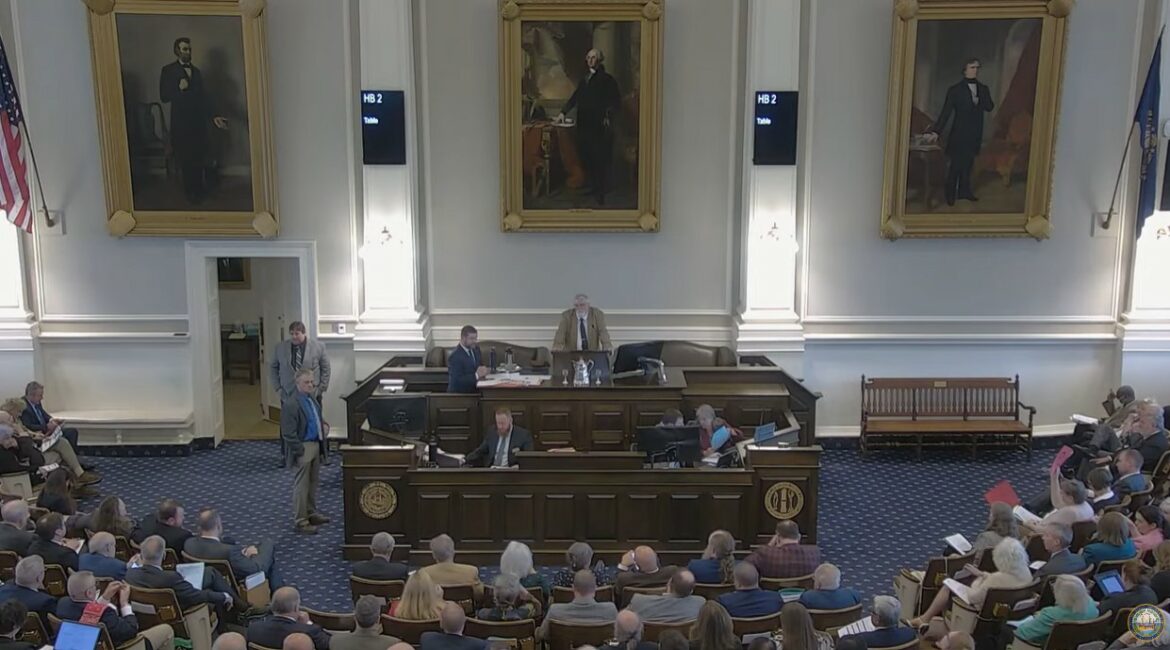By GARRY RAYNO, InDepthNH.org
CONCORD — Something is better than nothing, the House said Thursday as it approved watered-down language on landfill siting near water bodies.
The House earlier had approved a bill with set-back requirements much more stringent than current law for landfills near water bodies.
However, the Senate killed the bill and instead approved Senate Bill 61 which requires a study of current siting regulations.
The House Environment and Agriculture Committee added several sections that give the Department of Environmental Services two years to complete the study and $200,000 to hire a consultant to help, while holding any landfill application for two years until the study is done.
However other members of the committee wanted stricter rules that would require more technical requirements based on water movement and the potential impact of landfill leachate offsite.
Rep. Kelley Potenza, R-Concord, proposed the amendment saying the bill proposed is flawed and may not be constitutional as it would allow the legislature to delegate its oversight authority to bureaucrats and private consultants.
She said agency bureaucrats threatened a gubernatorial veto if the committee added more stringent language.
“Unelected bureaucrats and (industry) gatekeepers should not be making laws for the citizens of New Hampshire,” Potenza said. “Isn’t it time to put common sense back into an issue that will affect New Hampshire citizens for decades to come?”
The current bill would allow the current rules to apply if they are not changed in the two-year period, while her proposal would have new rules go into effect if the two-year aberrance ends, she said.
Rep. Wendy Thomas, D-Merrimack, said the current rules are so vague you could drive a garbage truck through them.
She noted her town is an example of what can happen when industry is not properly regulated, as toxic chemicals contaminated drinking water and people got sick.
“We can’t mess around with this folks. Landfills have piles and piles of potentially toxic garbage,” Thomas said. “People, the environment and wildlife need to be considered in this very important decision.”
Rep. Peter Bixby, D-Dover, said the bill addresses concerns raised by the Department of Environmental Services and provides the funding for a consultant to work with the agency on developing new rules to replace the current ones that will end next year and are 30 years old.
“If this bill does not pass,” Bixby said, “new landfill applications will be filed almost immediately under the (current) 200-foot setback.”
He said the House wants more protective and more stringent language, but the bill stops all permit approvals for the next two years.
Potenza’s amendment was defeated on a 226-152 vote, before the bill passed on a 236-132 vote.
The bill has to go back to the Senate because of changes the House made.
The House also approved Senate Bill 213 that would allow the state’s career and technical centers to access the LinkedIn social media platform so students may obtain credentials that will help them find work in their fields of study.
Some opposed the bill saying it would open up students to on-line predators, and data breaches that could steal their personal information.
But supporters said local businesses such as auto dealers and the hospitality industries have pushed to allow the student access national credentials.
They said the students’ parents have to approve the program and students are better protected working with facility instructors than alone at home on the internet.
The bill was approved on a 201-175 vote.
The bill has to go back to the Senate because of the changes the House made.
Landlord Rights
The House rejected an amendment giving landlords greater leeway in evicting tenants when a lease ends.
The House had passed House Bill 117, but the Senate killed it. The bill would have overturned a state Supreme Court decision that concerned a landlord evicting a tenant at the end of a lease without good cause.
Rep. Bob Lynn, R-Windham, asked the House to attach the bill’s language to Senate Bill 172 which allows a court-appointed guardian to be eligible for Temporary Aid to Needy Family benefits.
Lynn said the court’s decision would allow landlords to rent to more marginal tenants if they know they could evict the person at the end of a year.
But opponents said the state law has a number of reasons tenants could be evicted under the good clause provisions so the bill is not needed.
The amendment was rejected on a 188-185 vote, before the bill passed on a voice vote.
The bill goes to the governor.
Garry Rayno may be reached at garry.rayno@yahoo.com.





